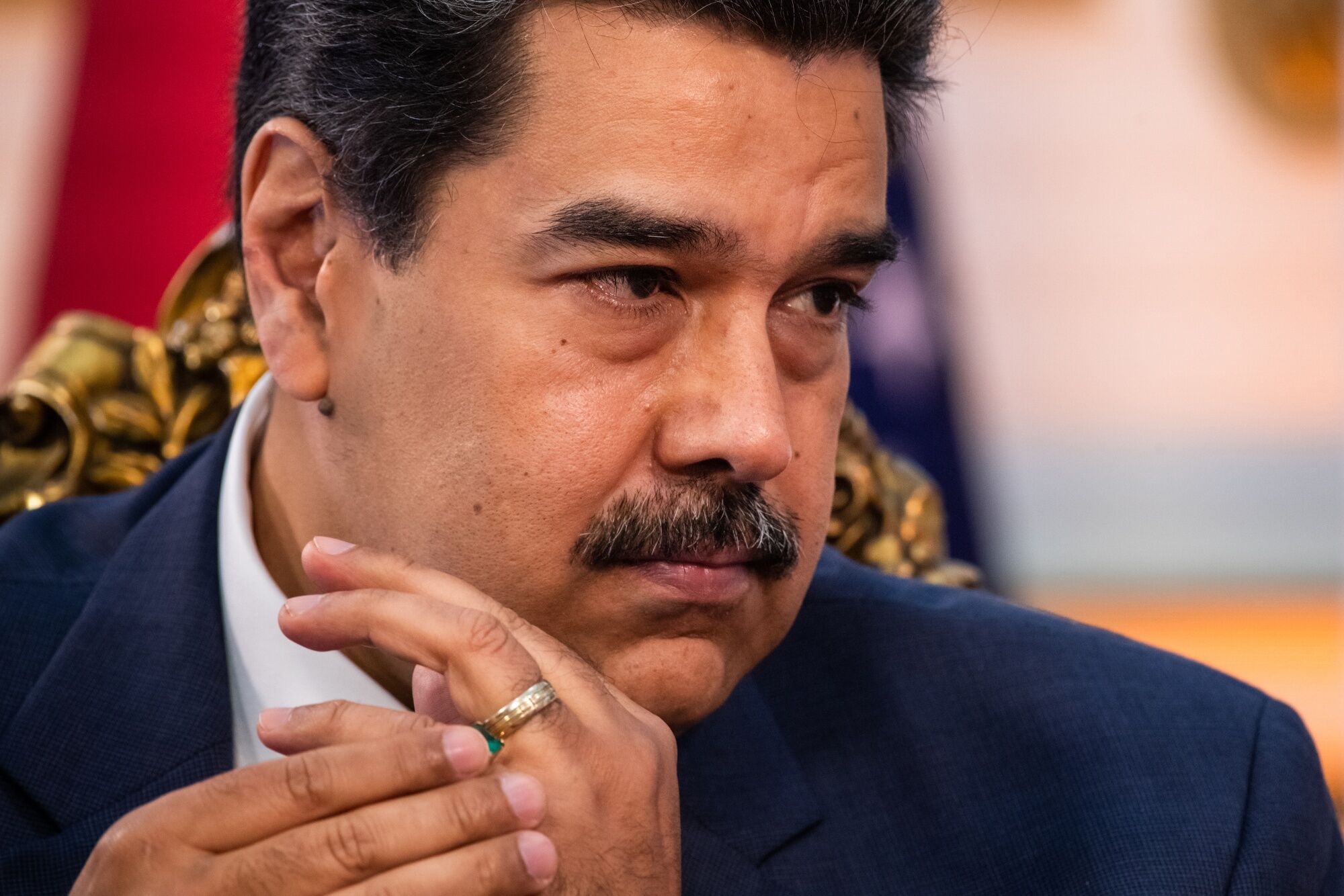Politics
Venezuela’s Maduro, Opposition Sign Agreement to Start Talks
By and- Negotiations to address sanctions, frozen assets, elections
- U.S., Canada and EU welcome announcement and issue caveat
Representatives of Nicolas Maduro’s government and the opposition signed a memorandum of understanding in Mexico City to begin talks on ending a five-year political impasse and addressing the nation’s economic collapse.
The head of the opposition delegation, Gerardo Blyde, said each side’s willingness and the common understanding that Venezuela is in the midst of its “worst crisis” in modern times made Friday’s signing possible.
Both sides agreed to discuss a schedule for elections with international observers, lifting of sanctions on Venezuela and the “restoration” of the right to use Venezuelan frozen assets abroad. The U.S., Canada and the European Union welcomed the announcement in a joint statement and said they’re ready “to review sanctions policies if the regime makes meaningful progress” in the talks.
“Our entire delegation is committed to do whatever it takes to achieve a comprehensive agreement,” Blyde said after signing the MOU. The “process begins, which must force us to reach agreements.”
Maduro’s lead representative, National Assembly chief Jorge Rodriguez, said Venezuelans now have the chance to settle issues “without any interference,” which could yield rapid progress. “We are ready for early agreements,” he said.
Dag Nylander, representative of the Norwegian government that’s acting as mediator, struck an upbeat tone and said the talks deserve “strong support from the international community.”
Lifting Sanctions
The sides are trying to reach an agreement ahead of elections on Nov. 21 for mayoral and gubernatorial posts across Venezuela. Opposition parties have boycotted several previous votes, arguing they lacked basic safeguards to make them free and fair.
“We continue to call for the unconditional release of all those unjustly
detained for political reasons, for the independence of political parties, for
freedom of expression including for members of the press, and for an end to
human rights abuses,” the U.S., Canada and the EU said in a statement provided by the State Department in Washington.
The talks will go ahead on “the principle that nothing is agreed until everything is agreed” with caveats that do foresee partial agreements if their “implementation is urgent,” according to the text of the MOU.
Stalin Gonzalez, former vice president of the National Assembly who will represent the opposition, said that after its signing the sides will return to Mexico later this month or early September to begin negotiations.
“The regime doesn’t have the capacity to solve this situation by itself,” he said of the country’s economic collapse. “We’ll look for ways to resolve this and help the people. It has to be a long-term agreement.”
Read more: Venezuela Election Talks Set to Begin Next Week in Mexico
Several previous rounds of negotiations ended in failure, including talks in Barbados in 2019, which were also overseen by Norway. This round has a better chance of succeeding as the two sides and foreign governments, including the U.S. and European Union, are more open to finding middle ground on issues like humanitarian assistance and human rights, said Maryhen Jimenez, a political scientist at the University of Oxford who studies Venezuela.
Maduro said he’ll send his son Nicolas Maduro Guerra to Mexico. Government lawmaker Francisco Torrealba, Miranda state Governor Hector Rodriguez, and a delegation from Russia will join the talks on the government’s behalf, according to five people with knowledge of the matter
Opposition leader Juan Guaido, said on Twitter that the MOU means the possibility of reaching a solution “to the national catastrophe.”
In addition to Russia and the Netherlands -- attending on behalf of the opposition -- the U.S., Canada, Turkey, Germany and Bolivia will monitor the talks but play no active role in the negotiations, one of the people said, describing them as a group of friendly nations.
Mexico was chosen as the venue because it is considered neutral ground by both sides.
— With assistance by Maya Averbuch, and Tony Czuczka





Keine Kommentare:
Kommentar veröffentlichen